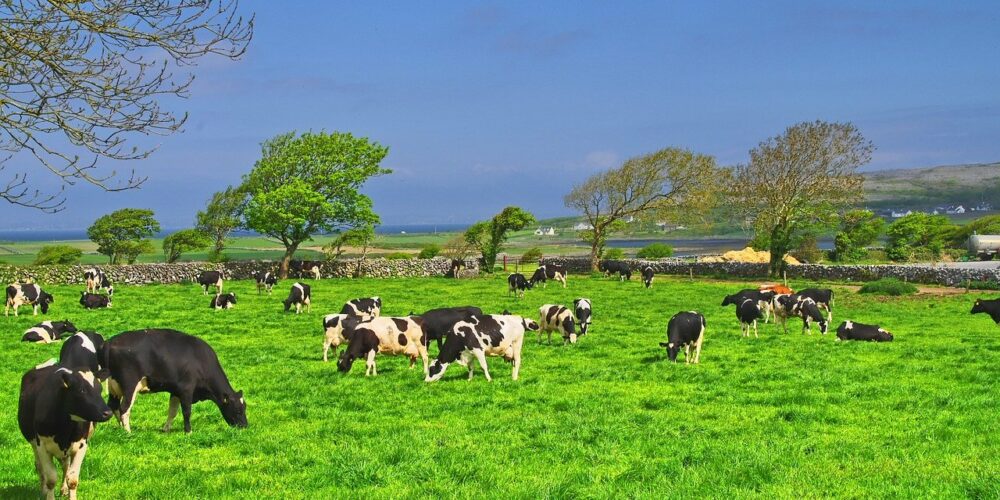Farmers always give the appearance that the last penny is in their pocket. Or better, hasn’t reached it yet. They might have 500 or 600 acres and they would still say, “It’s only a hobby.” No money in it, and talking about “giving it up” for fifty years.
And yet all is certainly not well in the farming sector. The bigger farmers on the better land have potentially more income, where the smaller farmers on wet and hilly land have only a subsistence return for their efforts. Many of these small-farm incomes are boosted by either partner, or indeed both, working in another job, sometimes part time. And yet all are governed by the same farming regulations, or supposed to be.
All farmers, like all businesses, are at the mercy of the market. And, like all producers around the world, they are exploited the most. When supermarket chains cut their prices to compete in the market they pressure the wholesalers, who in turn pressure the beef factory, the creamery, or wholesale vegetable supplier. They then pressure the farmers to take less for their produce. Where supermarket chains deal directly with farmers they just tell them they can no longer pay the previously agreed prices.
Either way the farmer is squeezed, while the people appear to get cheaper food.
But what is the real cost of all this? It guarantees that there is a friction between the wealthier farmers and in turn all other levels of farmer in the “pyramid.” It prevents any potential unity of farmers to get better prices, for one thing. Who does this suit? Can’t help feeling there’s a class issue here? But try explaining that to a poor “mountainy farmer” in the wilds of Leitrim, Donegal or Fermanagh struggling to pay diesel and fertiliser bills.
The upshot is that the farmers have to do all they can to make it pay. The main thing is to increase stock, so that they have more to sell, to compensate for falling profits. This means that land is then overstocked. To produce the grass to feed extra stock will need all kinds of fertilisers, slurry, and high-yield grasses.
So now the waterways are more polluted than ever. Therefore humans are affected. But the biodiversity is also affected. The natural insect, bird and animal food chain is seriously disrupted. All of this contributes to climate change as well.
Then there is the ultra-processing of foods to make new types of food: additives to sweeten or not, additives to boost colour, taste, texture, or longevity, to mention a few. Once again all this is geared for profit, not health.
When food was no longer produced to feed but became a commodity for profit it was inevitable that there would be pollution, and more hunger than ever in the world. Now many of the procedures, causing harm to human health and the environment, to increase profits “from farm to fork,” are being seriously questioned. But guess what? The wealthiest farmers, the food manufacturers and major retail chains want to retain the status quo. They don’t want any interruption to their gravy trains.
Meanwhile European money now contributes up to four-fifths of farm income. Surely they too know the real story of food production? They have seen the critical reports by scientists, as we all have. But then, it’s not about food, it’s about profit. And if a little bit of “corporate socialism” has to be introduced to keep the wheels of capitalism going, then so be it. Health, hunger and heartlessness are only collateral issues.






